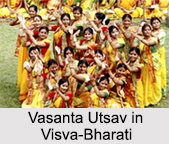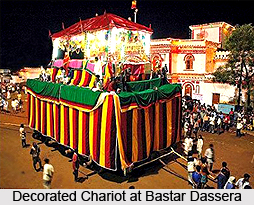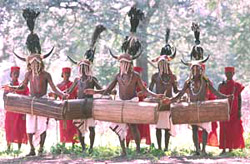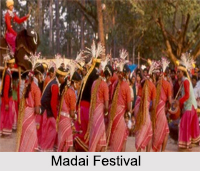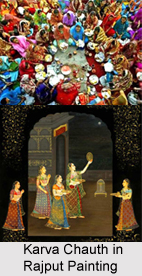 Karva Chauth is observed by married women of North Indian states and the states of Western Ghat Mountain Range in India like Uttar Pradesh, Uttarakhand, Uttaranchal, Jammu and Kashmir and Himachal Pradesh.
Karva Chauth is observed by married women of North Indian states and the states of Western Ghat Mountain Range in India like Uttar Pradesh, Uttarakhand, Uttaranchal, Jammu and Kashmir and Himachal Pradesh.
Fasting of Karva Chauth
A fast is observed from sunrise to moonrise for the longevity of their husbands.
Celebration of Karva Chauth
Karva Chauth is observed in the states of Uttarakhand, Uttar Pradesh, Himachal Pradesh, Haryana, Punjab, Rajasthanand Gujarat. Karvachauth falls on the fourth day after the full moon in the Hindu calendar month of Kartik.
Meaning of Karva Chauth
Karva is a synonym for ghada (earthen pot). A small earthen pot is used to keep the water cool and used for puja in this fast. Ladies exchange their earthen pots fourteen times while celebrating. In the end they get back their own pot and chauth means `fourth` in Hindi.
Rituals of Karva Chauth
Women begin preparing for Karva Chauth a few days in advance, by buying (shringar), traditional adornments or jewellery, and items such as the karwa lamps, matthi, henna and the decorated puja thali (plate). On the day of the fast, women awake to eat and drink just before sunrise. It is believed that this helps them to go without water the next day. The fast begins as the dawn sets in. Throughout the day no food is eaten and some do not drink water either. The woman who fasts does no housework. Women apply henna as well other cosmetics to themselves and each other. In some regions, it is customary to gift and exchange painted clay pots filled with bangles, ribbons, home-made candy, cosmetics and small cloth items. Karva Chauth follows soon after the Kharif crop harvest in the rural areas.
Costumes of Karva Chauth
In the evening, a women-only ceremony is held. Women dress in fine clothing and wear jewellery and henna. The dresses worn are frequently red, gold or orange in colour, which are considered auspicious colours. Depending on region a version of the story of Karva Chauth is narrated. Karva Chauth puja song is sung collectively by the women as they perform the feris (passing their thalis around in the circle). In Punjabi communities, the Karva Chauth song is sung seven times, the first six of which describe some of the activities that are taboo during the fast and the seventh describes the lifting of those restrictions with the conclusion of the fast. The forbidden activities include weaving cloth, pleading with or attempting to please anyone and awakening anyone who is asleep.
Exchange of Karva Chauth
In states of Uttar Pradesh and Rajasthan, the women exchange karvas seven times between themselves. In Rajasthan, stories are told by older women in the family which include narratives of Karva Chauth, Shiv, Parvati and Ganesh. Earlier an idol of Gaur Mata was made using earth and cow dung, which has now been replaced with an idol of Goddess Parvati.  Each fasting woman lights an earthen lamp in her thali while listening to the story. Sindoor, incense sticks and rice are also kept in that thali.
Each fasting woman lights an earthen lamp in her thali while listening to the story. Sindoor, incense sticks and rice are also kept in that thali.
Fera Ceremony of Karva Chauth
After the fera ceremony concluded, the women await the rising of the moon. Once the moon is visible it is habitual for a fasting woman, with her husband nearby, to view its reflection in a vessel filled with water, through a sieve. Water is offered to the moon in order to get the blessings. She then turns to her husband and views his face indirectly. At times the woman says a brief prayer asking for her husband`s life. Husband takes the water from the thali and gives his wife her first sip and feeds her with something sweet. The woman can have her complete meal. The husband gifts his wife something.

